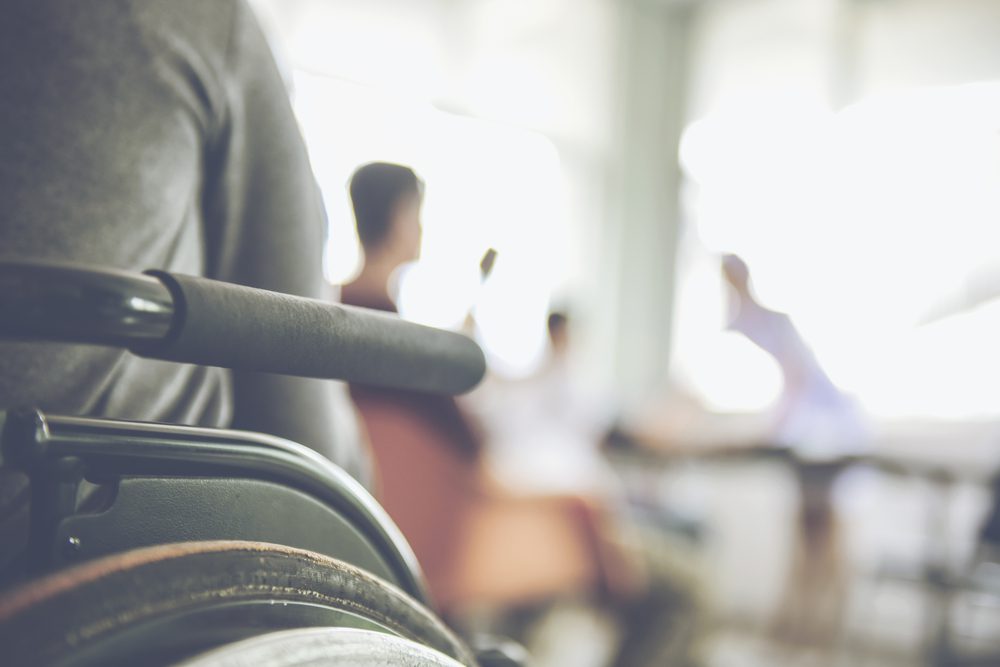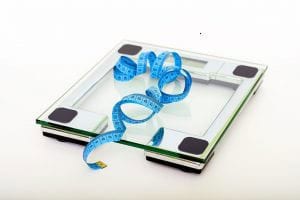Written by Salem Taylor
My name is Salem, I’m 43 years old, live in North Carolina and have hyperkalemic periodic paralysis.
Growing up as a tall, awkward home-schooled kid was tough enough, but added to my list of quirks was the fact that I randomly lost the function of my legs and arms. I don’t remember when I first noticed it, but it’s always been a part of my life. I learned very early on that skipping breakfast was not an option for me and that sitting for long periods of time in the mornings would trigger this bizarre phenomenon. One day in Sunday school when I was 12 years old the bell rang for dismissal and I stood up, then immediately slumped to the floor. I remember all the concerned faces above me and how frustrated I was that I couldn’t accept their offers to help me get up because my muscles wouldn’t work. I had to tell them to leave me there and assure them that eventually, I would be fine!
My mother took me to several doctors to try and get a diagnosis, but each one just did the normal screenings for diabetes, MS, and arthritis, then gave up. I finally got a diagnosis at age 28, when my first pregnancy made my symptoms debilitating almost every day. A neurologist identified it by the myotonia, a somewhat secondary aspect of my symptoms at that time. I had genetic testing done as well as an EMG that confirmed his diagnosis, and I’ll never forget the feeling of immense relief to FINALLY have an answer to what was wrong with my body.
For me, the hardest thing about living with periodic paralysis is the amount of self-care that it demands to manage it and how hard it is for other people to understand a condition that strikes periodically, rather than a constant state. I also have scoliosis, spinal fusion, and fibromyalgia. Some days I can shower, dress, go places, and be productive to a somewhat normal extent. On other days it’s like moving through molasses to even brush my teeth or put on pants. I can be at work or an event and find myself unable to get out of my seat or to pick up my legs enough to walk or hold a pen and write. Sometimes it affects my neck and tongue, and my speech is slurred. The myotonia is constantly present to a degree, so things like opening jars, navigating stairs, even looking both ways while driving, can be really hard. I’ve had to undertake a lot of counseling to learn how to get past my problem with self-care. KNOWING you need to put yourself first and actually DOING it on a daily basis can be impossible. It contradicts so many social norms and expectations. Our culture idealizes putting yourself last, being “productive “no matter what, and not inconveniencing others when you have needs. Having a career while living with limitations is also hard. I’ve always been told to not discuss health problems with potential employers, and to keep it a secret or else I would be seen as a liability more than an asset. We’re gradually making strides toward a more transparent and inclusive workplace culture, but the stigma still exists. I have decided that I am going to live authentically and openly as my weird self and that I only want to work in environments where that is respected. I’ve been touched by how other people feel safe opening up about their health struggles once they see that I am open about mine.
I am currently taking a yoga teacher training course to become a certified yoga instructor, and my area of expertise will be adaptive yoga for people with different bodies. I have found mindfulness, meditation, self-love, and body awareness to be extremely helpful and I want to share it with others.
I’m incredibly grateful that my 2 children are healthy (so far) and have dodged the genetic bullet for my conditions. I have struggled with feelings of inadequacy as a parent because I can’t do a lot of the things other moms do, like hiking, camping, running, playing sports, and even traveling. I spend a lot of time at home resting and my kids make jokes about mom “taking to her bed.” I laugh along with them because it’s the only way to deal with it. Dating is also tough. The number of dating profiles that list “all things outdoors!”, “looking for a gym buddy!” and sports like running as their main interests are daunting, and finding someone who values the duplicity of a health-conscious couch potato is definitely not easy. It only took one time of having a date literally push my butt up a hiking trail because I lost strength in my legs 20 minutes in for me to become much more transparent about my limitations!
I hope that my story encourages others with periodic paralysis and other rare diseases to not feel so alone or hopeless. I DO feel that way sometimes, and being a part of a support group online has been incredibly helpful. Being different is a sort of superpower because it makes you much more self-aware and much more understanding of other people. It’s also taught me patience and acceptance because when you can’t move your body, you can either make it worse by getting upset, or you can accept it and give yourself the time you need to recover.







